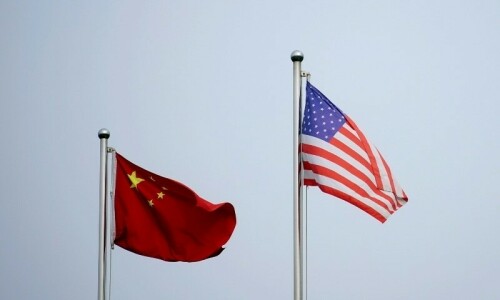With the repatriation of an Indian soldier who had crossed the LoC the day after the so-called surgical strikes last September, one of the more difficult phases in Pak-India relations has hopefully come to a close.
The sensible manner in which both Pakistan and India have handled the return of the soldier is commendable: after initial confusion and contradictory accounts of the circumstances in which the soldier came to be in the custody of Pakistani security forces, the two militaries and foreign ministries worked quietly to resolve the matter.
In the end, the soldier was returned in a dignified manner to India, with minimal grandstanding and no hail of accusations. When the two countries’ leaderships act sensibly and focus on problem-solving, the results can be pleasantly surprising.
To be sure, a great deal more will need to be done if the post-Uri attacks phase in the bilateral relationship is to turn towards the reactivation of dialogue between the two countries. The lessons from Uri are that an overreaction by either side causes the other to follow suit.
The wild cheerleading in India after its government claimed it carried out surgical strikes across the LoC put Pakistani policymakers in a situation where they felt compelled to respond to the Indian pressure and propaganda. Soon enough, the LoC ignited once again as both sides traded fire, and inside Pakistan anti-India sentiment was actively inflamed.
The new year — and perhaps a change in military leadership in Pakistan — has restored a degree of calm to a situation that had threatened to spiral out of control. With the return of the soldier, perhaps a new chapter in relations can be opened, provided that the leaderships of the two countries show the courage and vision necessary to restart a stalled normalisation process.
On the Pakistani side, it is fairly clear that the government of Prime Minister Nawaz Sharif wants dialogue with India and seeks the resolution of at least some of the old disputes plaguing ties. But is Indian Prime Minister Narendra Modi’s government willing to engage Pakistan again?
Examine: Modi has become a prisoner of his own image
With a spate of state elections imminent, including in some states where firebrand nationalist politics can help win votes, signs are that the Modi government is not willing to consider a fresh opening. While elections are important, it is also true that the Indian electoral calendar has state elections peppered across the term of a national government — meaning there will always be another election around the corner as an excuse to defer dialogue.
Mr Modi needs to show bold leadership at home and extend a hand of peace to Pakistan.
Published in Dawn, January 23rd, 2017













































